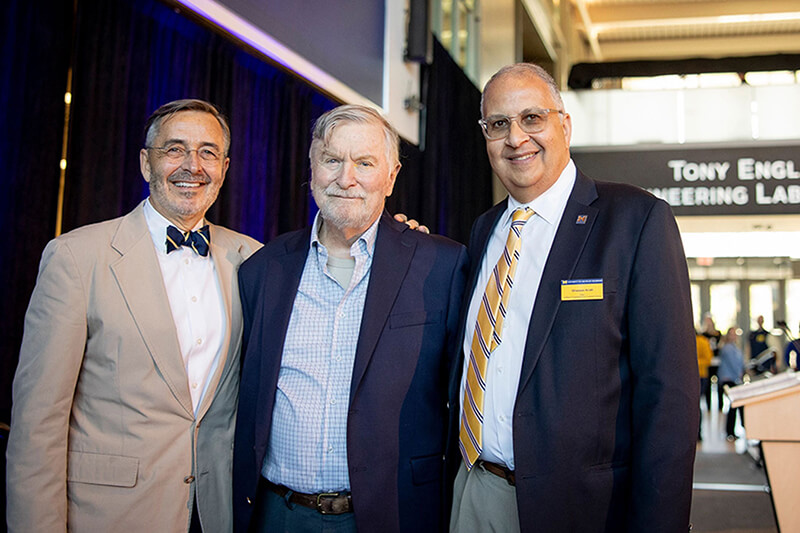UM-Dearborn Engineering Lab Building renamed for former dean

UM-Dearborn’s signature Engineering Lab Building (ELB) will now be known as the Tony England Engineering Lab Building, in honor of former College of Engineering and Computer Science (CECS) dean and NASA astronaut Anthony England (pictured center). The Regents approved the name change in February. A renaming celebration will take place in the spring.
England was CECS dean for eight years. He came to Dearborn from UM-Ann Arbor, where he served in various positions, including as associate dean of the Rackham Graduate School and associate dean for academic affairs at the College of Engineering.
England worked on two Apollo missions, flew on the Space Shuttle Challenger and served U-M’s Ann Arbor and Dearborn campuses for more than three decades before retiring in 2021. He was in the control room when Apollo 13 sent out the famous distress message, “Houston, we have a problem,” and helped the three stranded astronauts design and install a makeshift carbon-dioxide scrubber that saved their lives.
“Professor England’s visionary thinking and broad experiences in space and earth sciences and engineering is reflected in the ELB and is a testament to his legacy on our campus,” UM-Dearborn Chancellor Domenico Grasso said.
At UM-Dearborn, England boosted industry partnerships, championed DEI efforts and encouraged more holistic education. He also guided the transformation of the environment where that education took place, spearheading the ELB’s redesign. “I am both humbled and proud to have my name on the new ELB,” England said.
England earned his PhD in geophysics from MIT. At NASA, he was a mission scientist for Apollo 13 and 16, a mission specialist crewman on Spacelab 2 in 1985 and a space station program scientist from 1986–87. He also worked for the U.S. Geological Survey, where he led expeditions to Antarctica and the Arctic.
